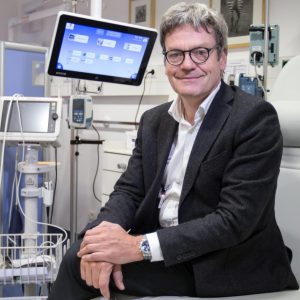
When oncologists hear the word St Gallen, they do not first think of a lovely Swiss town close to the Alps, they think of early breast cancer. St Gallen has become a brand, because it is here where maybe THE most important global forum on the treatment of early breast cancer started in 1987. Victim of its success and the ever-higher number of attendees, it has moved for logistic reasons to Vienna in recent years, but still holds the name of its origin.
The conference is also unique in its format: 4 days of intense debate of some of the globally most renowned experts in the field. Often passionate debates are an exquisite etude of dissecting study strengths, weaknesses and shortcomings in structures and outcomes, data analyzing and dialectic debating.
St Gallen’s consensus statements will be the reference for decision-making for the 2 years to come. Looking for clear guideline – like algorithms, some attendees will be rather confused leaving the conference (and this Report will also give you a hint of an “attendee’s experience”): Should you necessarily follow decisions based on a controversial vote of an expert panel? Which should be the threshold of a clear statement to follow? Full agreement, a 2/3 majority agreement, or a simple 51%? I will leave this up to you, dear reader, to decide.
Yours, sincerely,
Stefan Rauh
Medical consensus is a public statement on a particular aspect of medical knowledge at the time the statement is made that a representative group of experts agree to be evidence-based and state-of-the-art (state-of-the-science) knowledge. Its main objective is to counsel physicians on the best possible and acceptable way to diagnose and treat certain diseases or how to address a particular decision-making area. It is usually, therefore, considered an authoritative, community-based expression of a consensus decision-making and publication process.
Consensus statements differ from medical guidelines, another form of state-of-the-science public statements. According to the NIH, "Consensus statements synthesize new information, largely from recent or ongoing medical research, that has implications for reevaluation of routine medical practices. They do not give specific algorithms or guidelines for practice.
From: Wikipedia.com, downloaded May 16, 2019
Biography
Dr Stefan Rauh is currently working as haemato-oncologist in the oncology department of Centre Hospitalier Emile Mayrisch, Esch, Luxembourg. He is mainly involved in clinical work but also in research and teaching activities and is interested in public policy and international cooperation projects in oncology. He is Chair of the ESMO Practicing Oncologist’s Working Group since 2015, member of the ESMO Quality Task Force, extended member of the ESMO Public Policy Committee, Assistant Editor of ESMO Cancer Horizons, and has been an ESMO Executive Board member in 2015-2016. He is co-author of the 2017 ESMO European Cancer Patient Coalition (ECPC) Patient Survivorship Guide and an invited expert for the ECPC.
Conflict of Interest Statement:
Nothing to declare.
Posted on
Previous Article
« New Prognostic Biomarkers for Survival Breast Cancer Next Article
Over-active bladder »
« New Prognostic Biomarkers for Survival Breast Cancer Next Article
Over-active bladder »
Table of Contents: BCC 2019
Featured articles
New Prognostic Biomarkers for Survival Breast Cancer
St. Gallen Consensus
Special Lectures
Extrapolating data from clinical trials as we treat patients in real life
What is the clinical benefit of treatment of patients with early breast cancer?
Adjuvant and neoadjuvant therapy: principles and practical considerations
Selected Posters
Discordance of biomarkers in multifocal and lymph node positive breast cancer
New Prognostic Biomarkers for Survival Breast Cancer
Selection of patients for neoadjuvant chemotherapy treatment based on oncotype recurrence score in luminal breast cancer
Related Articles
May 21, 2019
History of the consensus meeting
May 21, 2019
Bisphosphonates and denosumab
© 2024 Medicom Medical Publishers. All rights reserved. Terms and Conditions | Privacy Policy
HEAD OFFICE
Laarderhoogtweg 25
1101 EB Amsterdam
The Netherlands
T: +31 85 4012 560
E: publishers@medicom-publishers.com

